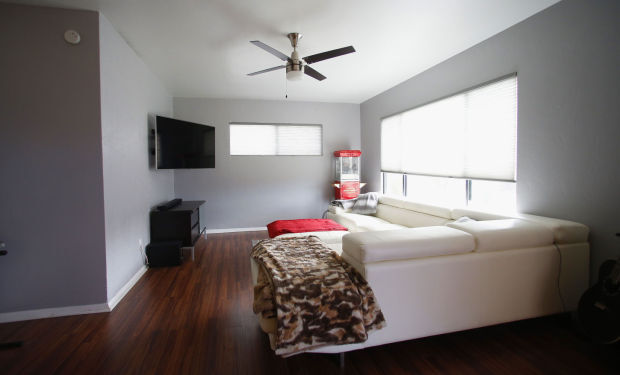PHOENIX — Rejecting claims the measure amounts to little more than window dressing, a House panel voted Tuesday to give local governments more power to regulate short-term vacation rentals.
But just a bit.
SB 1379 allows communities to impose civil penalties for failure to provide local authorities with information on how to contact owners. They also can be sanctioned for failing to maintain liability insurance of at least $500,000.
And three violations within a 12-month period could end the owner’s ability to rent out a house.
That was just fine with Airbnb, whose lobbyist said he supports the measure.
But the legislation left many less than satisfied amid complaints that it does too little to make a difference.
For example, the original measure would have imposed occupancy limits: two adults per bedroom, up to four bedrooms, plus two additional adults for each 1,000 square feet of livable space in excess of 3,000 square feet. That is now gone.
A bigger problem for some is that the measure still denies local communities the ability to limit the number of short-term rentals in any particular area.
The concerns expressed during more than an hour of testimony Tuesday were not with individuals who occupy their homes and rent out a room. Instead, the focus is on investors who buy up one or more homes and convert them into short-term rentals, creating what some see as de facto hotels — but with no staffing — in residential areas.
“This bill doesn’t really do anything to help neighborhoods,” said Kate Bauer, speaking as a member of Take Action Phoenix.
She wasn’t the only one.
“I feel like I am living next door to an unmanned hostel,” said Vandana Verma.
Paradise Valley Mayor Jerry Bien-Willner said that it doesn’t address the harms that these rentals cause to neighborhoods and communities.
“It only creates the illusion of regulation,” said William Hunter.
And Karl Isenberg, a real state broker in Scottsdale, said he generally supports business and development. But he called this measure a “baby step” that doesn’t go far enough.
“I would urge you to have the courage to say ‘No,’ “ he told lawmakers.
That didn’t happen as the panel gave the measure unanimous approval, sending it to the full House.
Even Rep. Steve Kaiser, who represents an area of north Phoenix he said has been affected, said he had to go along with the plan.
“It’s just heartbreaking, thinking about where you live turning into such an issue where you can’t even walk down the street any more,” he said, reflecting complaints to committee members that the constant churn of temporary residents has made them feel unsafe. He called the bill “a step in the right direction.”
Rep. Pamela Powers Hannley, D-Tucson, also agreed to vote for the measure to advance it.
“This bill does some things,” she said. But Powers Hannley said she wants to see changes when the bill, which already has been approved by the Senate, now goes to the full House.
That, however, may be wishing for something that won’t happen.
Rep. Jeff Weninger, R-Chandler, pointed out that there have been other measures offered with the additional restrictions that some people want. That includes HB 2481 proposed by Rep. John Kavanagh, R-Fountain Hills, which included both the occupancy limits and the ability of cities to regulate the number of short-term rentals.
Weninger pointed out, however, that bill and others have failed to advance. And he warned colleagues about trying to add those provisions onto SB 1379 “and then you don’t get anywhere.”
Sen. J.D. Mesnard, R-Chandler, who is sponsoring the bill, rejected claims that the measure amounted to just “window dressing.”
“From my perspective, this is a scalpel to a situation,” he said.





